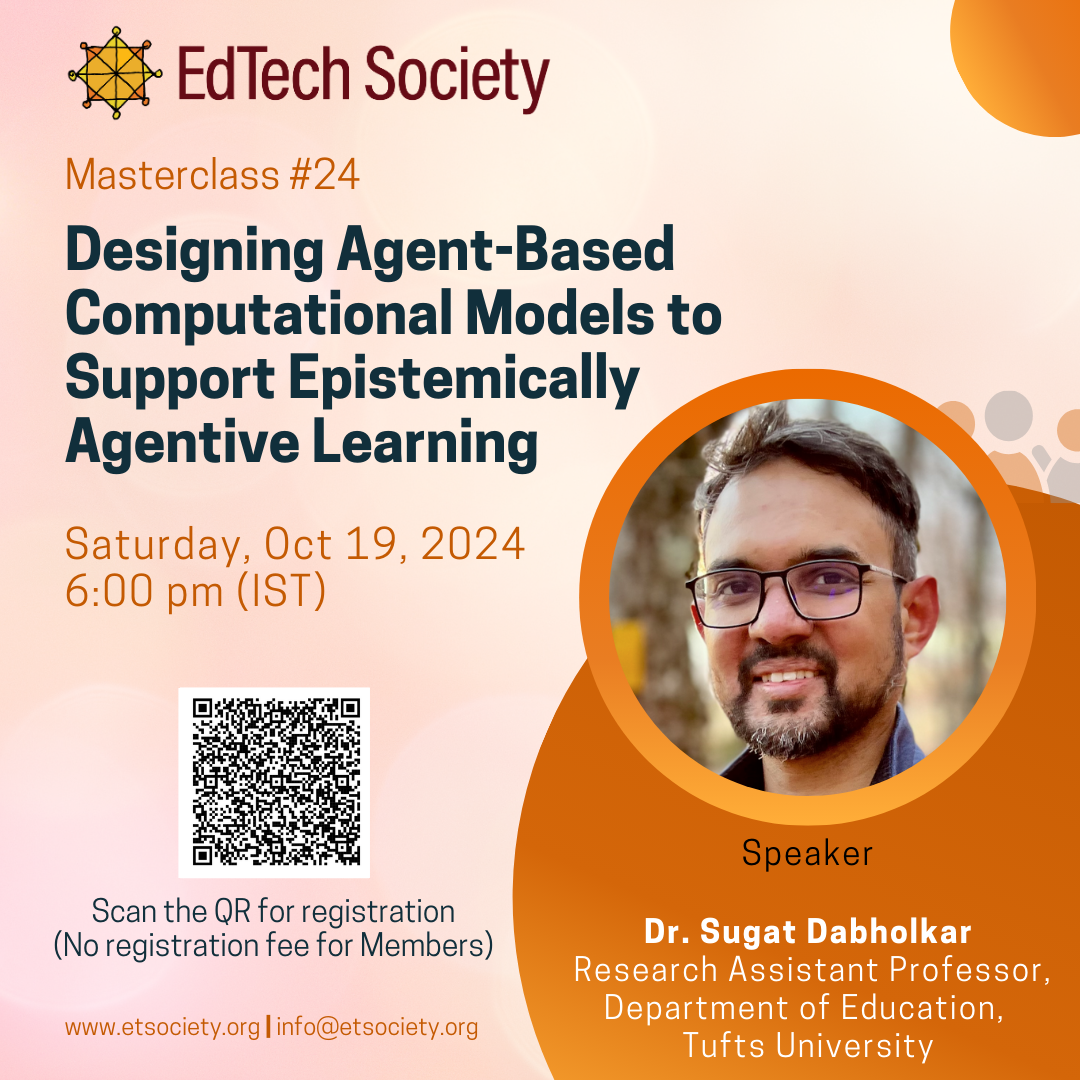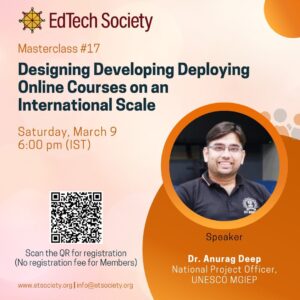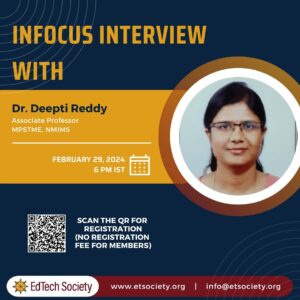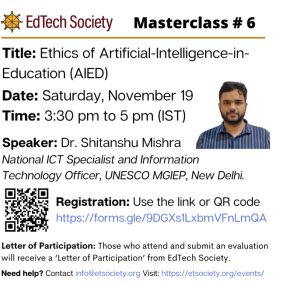Description
Brief Description
School and college education is often disconnected from how professionals in a discipline such as science or engineering participate in their disciplines. Recent curricular reforms in India, as well as all over the world, emphasize that students learn the practices of scientists and engineers. As we integrate newer technologies into schools and colleges and adapt to these curricular reforms, we must think expansively about what it should mean for students to learn and do science in a science classroom. Epistemically agentive learning in a science classroom is about taking an active role in learning how to do science by using practices that scientists use.
Following the design-based research tradition in Learning Sciences, my work focuses on creating agent-based computational models designed as Emergent Systems Microworlds (ESMs) to support students in doing science. In this session, I will discuss how students can learn with EMS-based curricula and how to co-design ESM-based curricula with teachers. This work has implications for refining the goals of science education, designing curriculum materials, and supporting teachers’ professional development.
Date and Time: Saturday, October 19, 2024, 6:00 pm to 7:00 pm
Pre- Requisite(s): None
Target Audience: Teachers, Educators, Researchers
Key Objective(s):
How to design and use agent-based computational models for teaching and learning
How to support students’ epistemic agency
Instructor:Sugat Dabholkar
Research Assistant Professor, Department of Education at Tufts University
Brief Bio
Sugat Dabholkar is a Learning Scientist who works in the field of science education. Sugat is currently a Research Assistant Professor in the Department of Education at Tufts University. Before joining Tufts, Sugat worked as a Postdoctoral Associate at Rutgers University and as a Distinguished Research Fellow at Northwestern University. Sugat completed PhD in Learning Sciences from Northwestern University. Over the past several years, Sugat has designed and co-designed several computational agent-based models and curricula, many of which have been used in high schools in the US as well as in India. He has presented his work at several highly prestigious international conferences and authored several peer-reviewed journal publications. Before starting his Ph.D. in Learning Sciences, Sugat was first a computational biology researcher and then a science content developer for a multi-national organization in India.
Speaker’s LinkedIn Profile Link







Reviews
There are no reviews yet.